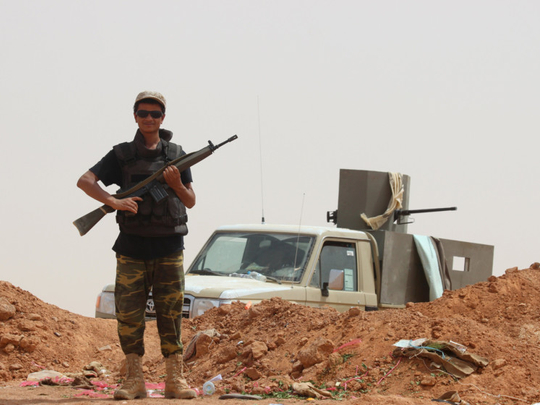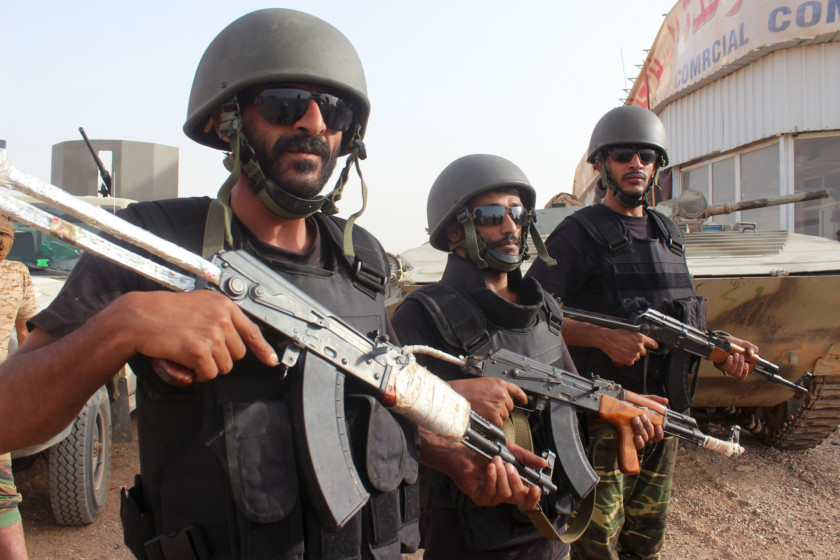
Sana’a: Aid agencies scrambled Friday to rush in desperately needed relief supplies to millions of Yemenis threatened with famine amid guarded hopes for a six-day truce to take effect before midnight.
The United Nations on Thursday announced a six-day ceasefire that will begin Friday at 11:59 pm (2059 GMT) and last until the end of the Muslim fasting month of Ramadan on July 17.
But hours before the deadline, warplanes from the Saudi-led coalition pounded positions of Iran-backed Al Houthi militants, more than three months into their campaign in support of exiled President Abd Rabbo Mansour Hadi.
World Food Programme spokeswoman Abeer Etefa told AFP that the truce was “our final hope” to reach areas in need of aid.
She added that two ships carrying food and fuel were waiting to dock off the coast of the southern port city of Aden.
The pause was declared after UN Secretary General Ban Ki-Moon received assurances from Hadi and Al Houthi militants that it would be respected.
It comes more than a week after the UN declared Yemen a level-3 humanitarian emergency, the highest on its scale, with nearly half the country facing a food crisis.
“It is imperative and urgent that humanitarian aid can reach all vulnerable people of Yemen unimpeded and through an unconditional humanitarian pause,” UN spokesman Stephane Dujarric said.
UN aid agencies are ready to scale up operations during the pause, although the response to an appeal for $1.6 billion has been meagre, with just 13 percent of that amount received so far.
More than 21.1 million people - over 80 percent of Yemen’s population - are in need of aid, with 13 million facing food shortages.
The UN says the conflict has killed more than 3,200 people, around half of them civilians, since late March.
This will be the second ceasefire since the Saudi-led coalition launched an air campaign against the Iran-backed Al Houthi militants and their allied troops loyal to former president Ali Abdullah Saleh in March.
A five-day truce in May allowed aid to reach civilians caught in the fighting, but UN efforts to prolong the ceasefire failed.
Al Houthis overran Sana’a unopposed in September and have since expanded their control over several regions, aided by troops loyal to Saleh.
They pushed Hadi into exile when they advanced in March on the southern city of Aden, where he took refuge after escaping house arrest in Sana’a.
The Minister of Human Rights in Hadi’s exiled government, Ezz Al Deen Al Asbahi, cast doubt over the militants’ commitment to the truce.
“They exercise high-level trickery, even with the international community. Their military movements on the ground do not reflect a good will, or sincere decision to cement a humanitarian truce,” he told AFP.
Sana’a resident Mohammad Al Juhayfi said he was already dreading the end of the forthcoming truce.
“We do not want a truce of five or ten days, which we will then count by the minute. We want a full solution for the Yemen crisis,” he said.
The Saudi-led coalition did not comment on ceasefire.
On Friday, warplanes hit rebel positions north of Sana’a, as well as in the rebel northern stronghold of Sa’ada, witnesses said.
Air raids also targeted Al Houthi militants in the provinces of Marib, Dhamar and Baida.
In Aden, where heavy clashes continued between Al Houthis and southern fighters allied with Hadi, coalition warplanes struck Al Houthi positions in Al Muala district and the northern and western outskirts of the port city, military sources said.













